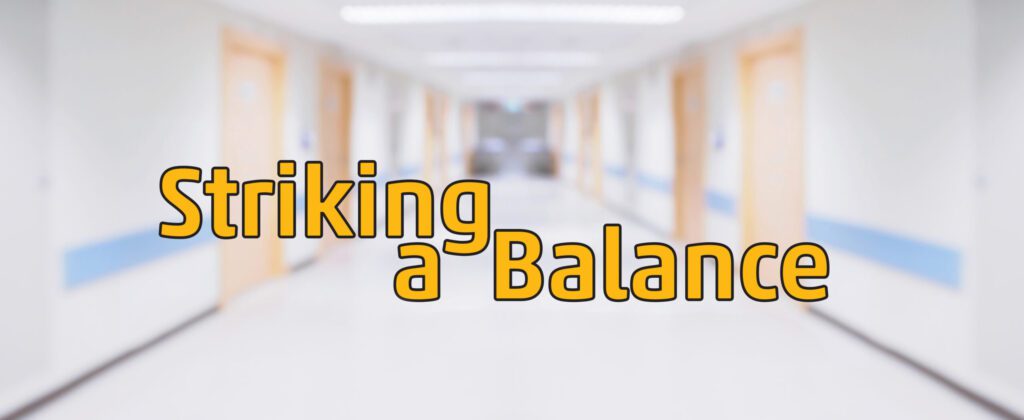BayCare Chief Nursing Officer Using Circumstances to Shape Collaborative Approach to New Role
by TIM CRAIG
A pair of close-up medical experiences helped shape a young Misty Holland into a medical professional who is set to make a difference in Polk County health care.
Holland, who was appointed as the Vice President of Patient Care Services and Chief Nursing Officer for the Polk region in July, oversees nursing operations for Bartow Regional Medical Center, Winter Haven Hospital and Winter Haven Women’s Hospital. The position is the latest in a three-decade career in health care that has taken her around the country, a career that got its seed planted in the young daughter of an Air Force air-traffic controller.
When Holland was 14, she saw her father experience his first heart attack — though they didn’t know it at the time. He was pitching in a softball game on base when he came off the field complaining of pain in his left arm and his chest. After the game, Holland drove her dad to the base hospital, where his true condition was overlooked.
“When we walked in, they saw a healthy, active, 40-year-old male and diagnosed him with a pulled muscle and sent us home,” she says. “After about two weeks of not being able to even walk without assistance, he returned to work.”
About 18 months later, after her father’s retirement, he had his second heart attack, this time while golfing. He went back to the base hospital, but this time, there were different results.
“There was a new flight surgeon on duty who took one look at him and knew he was having a heart attack,” she says. “He was transported to a civilian hospital in downtown Little Rock and survived.”
But the damage had been done. He was placed on disability because of the cardiac damage his heart had suffered through the years. Four months after that and a little before Holland turned 16, he died at home. Looking back, this experience gave Holland a glimpse of what health care should and shouldn’t be, she says.
“When my father had his first heart attack, there was an assumption that because he was young and active, that he had to have pulled a muscle,” she says. “At the opposite spectrum, there was a big difference the second time, where you had a team assessing the situation and demonstrating care and compassion. After these experiences, I really thought I wanted to be a physician.”
However, when she was about 18 years old, an emergency surgery showed her what a doctor’s life could be like between the clinical rotations, the 48-hour shift and the lack of a personal life.
“I realized it wasn’t for me,” she says, laughing. “But I had phenomenal nurses who took such good care of me that I knew that not only was health care where I was supposed to be, but that as a nurse, I would find my passion.”
Pursuing that passion led to a Bachelor’s of Science in Nursing from Albany (Ga.) State University and a Master’s degree in Healthcare Leadership from Western Governors University in Salt Lake City. She holds specialties in emergency services, intensive care and telemetry. Through her career, Holland has seen the role of a nurse change.
“When I first started, nurses worked eight-hour shifts, all the documentation was on paper and everything was about the physician,” she says. “Now it’s more collaborative. It’s about working together to help patients heal in a safe, high-quality environment and to assist them to continue that cycle of wellness.”
That collaborative effort is exemplified in her approach to her new role.
“It’s about collaborating with nurses, physicians and ancillary staff to make sure we have all the resources we need to take care of our patients,” she says. “Since health care is always changing, I continually look at clinical standards and ensure we’re doing everything right so we can prepare for the future.”
Preparing for the future also includes taking care of the present, and the current national health crisis has helped Holland strike a balance between providing the best care possible at work and maintaining a healthy life outside of the hospital. Holland calls it resiliency.
“The question that nurses face is how to deal with a pandemic and then go home to our families,” says Holland. “We still need our team members to maintain a work/life balance by learning to become more adaptable and considering new strategies in order to care for our patients, our teams and our families.”
Holland encourages her teams to think of ways to improve the lives of COVID patients while also finding ways to keep her staff safe. She likes to give them the freedom to look outside the box in order to find solutions and that freedom helps keep her staff excited about their jobs. Her new role has also found a way to keep her passion, born of tragedy and shaped by experience, alive as well.
“Most people assume that I’m in a lot of meetings, being in an administrative role, but I like to take every chance to get out on the floors and see the patients and staff,” she says. “I’m passionate about health care and I love people. I see my role as about making genuine connections with people and seeing people are well taken care of. I want them to know that I care, that I’m accessible and my job is to help them be successful.”
